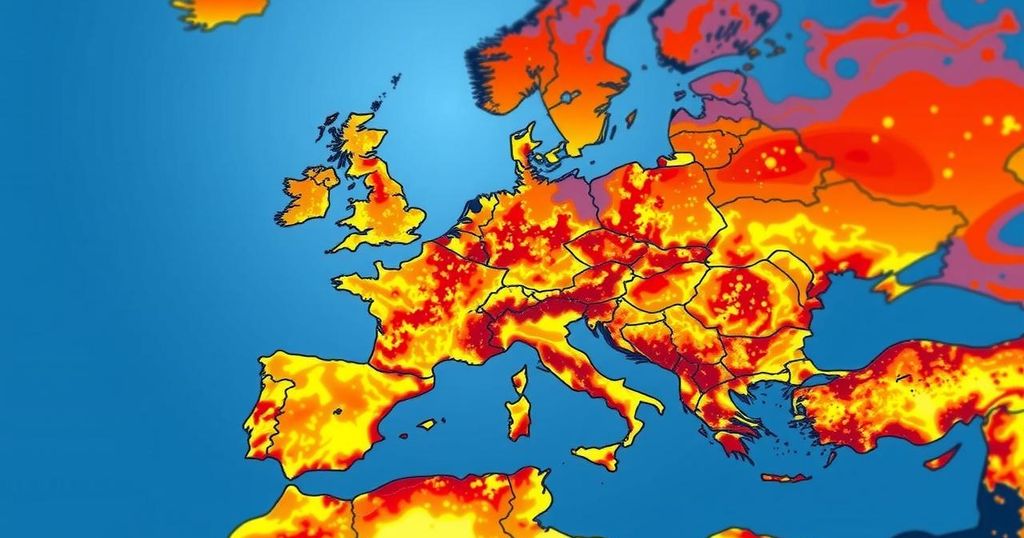The Copernicus Climate Change Service reports that 2024 is anticipated to be the hottest year ever recorded, with temperatures likely surpassing 1.5 degrees Celsius above pre-industrial levels. This announcement occurs ahead of crucial UN climate negotiations in Azerbaijan, aiming to enhance carbon reduction efforts amid alarming climatic trends and global warming consequences.
The Copernicus Climate Change Service (C3S) has declared that 2024 is “virtually certain” to become the hottest year on record, with temperature increases expected to surpass 1.5 degrees Celsius above the pre-industrial average. This announcement precedes significant UN climate negotiations in Azerbaijan, where nations are expected to discuss strategies to mitigate climate change. Last month, October, set notable records, being the second hottest on record, influenced by extreme weather events such as severe flooding in Spain and Hurricane Milton in the United States. The EU monitor noted that global temperatures could rise beyond 1.55 degrees Celsius, reflecting an alarming trend that has been exacerbated by human activities, particularly the burning of fossil fuels. Notably, these temperature records do not violate the Paris Accord, which measures climate targets over several decades. C3S Deputy Director Samantha Burgess emphasized that this forthcoming year marks a crucial milestone in our understanding of climate change and should galvanize global leaders toward greater ambition in addressing climate issues. In addition to rising temperatures, recent climate data reveal concerning trends regarding global carbon emissions, with projections indicating potential heating of 3.1 degrees Celsius this century unless substantial action is taken. Noteworthy climatic events, such as unusual rainfall patterns across various continents and ongoing droughts in the United States, have been linked to the escalating global temperatures. The Copernicus Climate Change Service utilizes extensive data collected from multiple sources, ensuring a precise assessment of climate conditions and changes. Finally, the agency posits that the Earth is currently experiencing thermal conditions likely unparalleled in over 100,000 years, painting a dire picture of the planet’s climatic trajectory if decisive action is not pursued. Throughout this critical juncture, international agreements and commitments to climate change must be reinforced to negate further detrimental consequences and achieve sustainable planetary health.
As global temperatures rise to unprecedented levels, the urgency to confront climate change has intensified. The Copernicus Climate Change Service plays a vital role in monitoring and reporting climate data, helping nations comprehend the implications of rising temperatures. This article highlights significant findings from Copernicus, particularly regarding the year 2024, set to break records with concerning implications for global climatic stability. Understanding previous records and current trends is fundamental in grasping the gravity of the situation, especially during pivotal international discussions. The ramifications of reaching a threshold of 1.5 degrees Celsius are profound, prompting discussions about the effectiveness of international agreements like the Paris Accord. Governments worldwide must adapt their strategies in light of worsening climatic events, emphasizing the importance of proactive measures against global warming.
In conclusion, the assertion from the Copernicus Climate Change Service that 2024 will likely be the hottest year on record serves as a clarion call for immediate and ambitious climate action. As we teeter on the brink of exceeding critical temperature thresholds, global leaders must prioritize robust and effective climate policies. The projected consequences of inaction are dire, underscoring the necessity for collective efforts to stabilize global temperatures and curtail emissions.
Original Source: www.barrons.com






